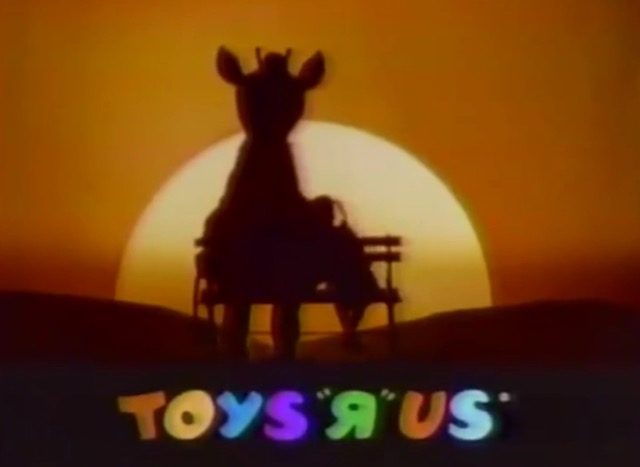Nostalgia can run strong when beloved things from our childhood begin to disappear.
Recent news has outlined the demise of two businesses that many of us have known and loved for a long time: Claire’s and Toys R Us.
These were staples, for many of us, during our development and coming of age. Everyone I grew up with shopped at Claire’s at the mall and knows all the words to the Toys R Us jingle.
With these businesses folding, the memes began remembering all of the other businesses that are no longer with us: Discovery Zone, Hollywood Video, Sharper Image, Radio Shack, and Blockbuster.
It can be difficult to see things from our past become relics. I worked one season in college as a holiday greeter for Toys R Us. I bought earrings from Claire’s, and my daughter had her ears pierced there.
Those of us sandwiched between the Millennials and Baby Boomers remember the evolution of phones from rotary, pagers and pay phones, the first car phones, to the first cell phones. We watched our music be delivered on cassette tapes, then CDs, and then MP3 players (until our smart phones made even those obsolete).
What’s next?
While our nostalgia for old stores and old music may run deep, it seems like we may be missing some greater global changes. In March, the last male Northern White Rhinoceros died, leaving only two females of the species left. While they’re hoping that they can use collected samples to artificially inseminate the remaining females, there’s a good chance that we may be seeing the last of this noble beast.
In other recent news, the International Union for the Conservation of Nature announced that poaching and habitat encroachment have caused the giraffe to be added to the endangered species list. While we’re publicly mourning the loss of a jewelry or toy store, we may actually be losing the fight to save a subspecies of rhino and giraffes.
It’s great that we feel such sentimentality toward these markers of our past, but it would be more useful if we took the time to try to preserve some of that history ourselves. It would also be helpful to focus on how we can help conservation efforts surrounding our environment, plants, and animals with our time, money, and resources.
These aren’t separate issues. The future is coming faster than ever, and every new technology seems to threaten the old. It’s important that we take the time to process these changes and to preserve the things that are important to us. Being a little sad but otherwise complacent isn’t going to help a business we love survive, and it’s not going to make a targeted species thrive.
As I hear the death knell sound on these businesses and wonder about the future of animals we’ve taken for granted, it occurs to me that what I might be hearing is a personal wake up call to my own complacency. It seems like now is the time for us all to start caring about the environment, about sustainability, about where and how we spend our money, and about what the impact of our lives will be on the world around us.
So what can we do to step outside of this casual acceptance of change to try to preserve and conserve the world around us?
>> We can shop local. We can do our parts to make sure our favorite local haunts thrive.
>> We can read the labels. Fair Trade. Organic. Non GMO. Vegan. Sustainable. We can learn what these labels mean and why we should care about them.
>> We can give our money to ethical businesses that support causes we believe in.
>> We can find a way to support conservation efforts. This might mean joining a local historical society or a group whose conservation efforts focus on animals, plants, or even cultural history.
>> When new technology comes on the market, we can look into responsibly recycling our old tech equipment.
>> We can do the whole reduce-reuse-recycle thing. We can even add in upcycle. And compost. It all matters!
>> We can support responsible development, rather than just expansion for expansion’s sake.
>> We can pay attention to what our lawmakers are planning and be sure to contact our representatives when environmental protections are placed at risk for profit.
>> We can simply appreciate what we have, right now, before it’s gone. Because it will, one day, be gone.
Conservation doesn’t have to be about moving to another country and actively trying to save a species. Maybe we save an old library or a historic home. Maybe we preserve a record collection or a collection of rare books. Maybe we preserve and value art or think about the impact of our whole lives on the ecosystem. Nostalgia is a beautiful thing, but it’s a wasteful thing if we don’t channel it into something positive for the world we live in.
We can do so much better and make a difference at the same time.
~
`
~
Author: Crystal Jackson
Image: YouTube
Editor: Travis May
Copy & Social Editor: Yoli Ramazzina


 Share on bsky
Share on bsky





Read 0 comments and reply